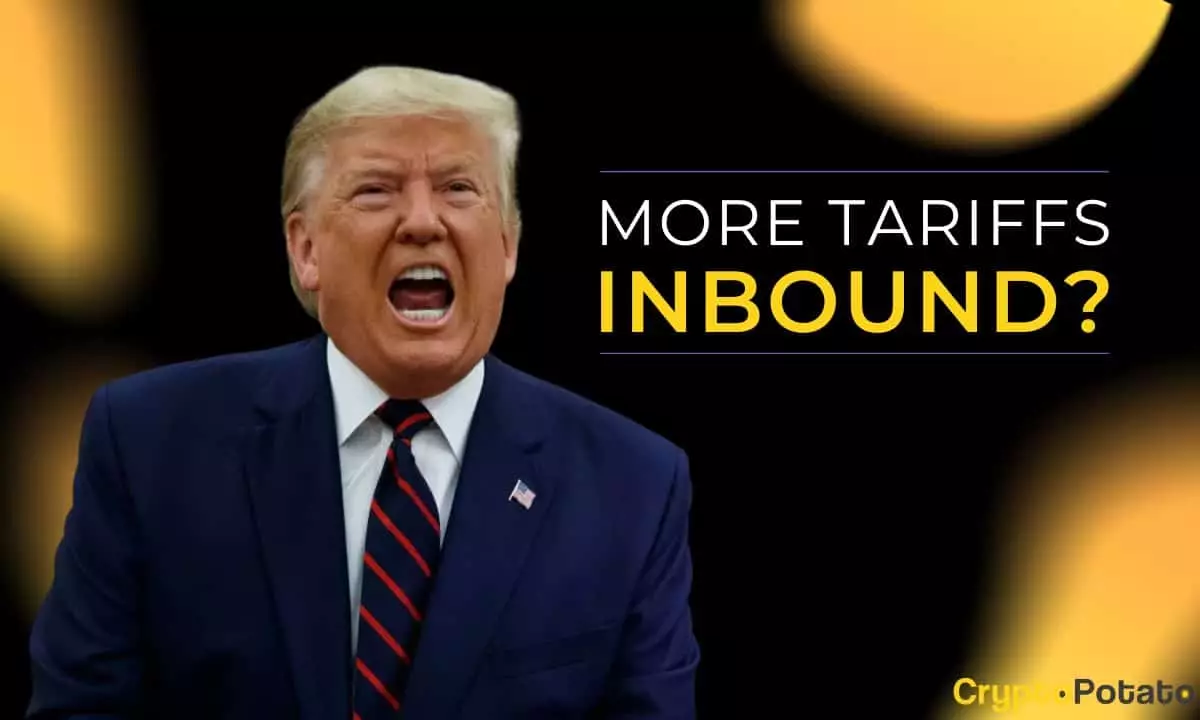In the wake of President Donald Trump’s drastic announcement of retaliatory tariffs on April 2nd, dubbed laconically as “Liberation Day,” the world financial landscape stands on a precipice. Fundamental to our economic stability is trade—the lifeblood that fuels global interdependence. Yet Trump’s seemingly uncalculated approach, which slaps a blanket 10% tariff on virtually all imports, coupled with staggeringly excessive rates on specific nations, exposes our economy to unprecedented volatility. China’s immediate 34% retaliatory tariffs serve as a clarion call: this isn’t a simple trade squabble but a potentially destabilizing international crisis.
The President’s rationale for imposing these tariffs under the guise of eliminating trade deficits appears rooted in hubris. By framing these tariffs as “reciprocal,” he betrays an ignorance about the principle of trade; it’s not merely about winning battles, but achieving balanced partnerships that foster mutual growth. A clearly articulated trade policy—a strategy grounded in understanding economies on a global scale—is what has been sorely missing, almost as if ignorance is bliss for those in power.
Economic Shockwaves Across Markets
The immediate reaction from global markets has validated fears of a protracted trade war. The steep decline—over $5 trillion erased in mere days—demonstrates ahair-raising fragility that could dismantle stock market stability built over the years. For conservative investors and everyday American citizens who rely on these markets for retirement, this isn’t just abstract economic theory; it’s personal. The S&P 500’s 6% tumble and the brutal bear market for the Dow and Nasdaq not only point to uncertainty but also a chilling realization: our economy is no longer insulated from erratic political maneuvers.
As tech giants like Microsoft and Apple suffer sharp declines, it’s a clear message: no sector can remain unscathed when the anchors of our economic landscape are in turmoil. Innovation, growth, and employment prospects hinge on a stable market, and when such instability looms due to errant political acts, it reveals the vulnerability of even the most elite companies. Beyond markets, there lurks a growing concern that a significant downturn could reverberate beyond our borders, bringing the global economy into a recession that echoes the catastrophic fallout from previous trade conflicts.
A Global Game of Tug-of-War
This isn’t just an American issue; the international community is on edge. Countries around the world, particularly those hit hardest by the new tariffs, face a tug-of-war between retaliating and looking for avenues for peaceful negotiation. China labeling America’s actions as “bullying” and a direct “violation” of trade regulations is revealing of a broader sentiment that could lead to deep-rooted animosities. The political sphere is polarized enough, and trade tensions will surely fuel this division, creating potential rifts beyond economics, into the realm of international relations.
Meanwhile, the EU’s careful balancing act—diplomatically engaging while publicly signaling readiness to defend their interests—exemplifies the approach many nations are likely adopting. They recognize that a trade conflict benefits no one but rather provides fertile ground for economic isolationism—an archaic idea in an age that thrives on globalization.
The Noteworthy Divergence in Crypto
Amid the tumultuous economic climate, an intriguing phenomenon has emerged in the cryptocurrency sector. Bitcoin’s resilience, charting a mere 0.3% drop amid widespread traditional market debacles, suggests a crucial decoupling. Industry analysts examining Bitcoin’s recent performance alongside traditional asset classes have become cautiously optimistic. This unexpected stability amidst chaos could indicate a divergence from contemporary market structures—a sign of a new paradigm in financial assets unshackled from conventional market drivers.
Intriguingly, this phenomenon of “positive divergence” implies that Bitcoin may not just withstand the storm; it could emerge as a haven for investors disillusioned with both political decisions and traditional markets. Could we witness the ascendance of crypto as a legitimate financial instrument, especially when a once stable economy is rendered volatile by unrestrained political ambition?
As we venture deeper into this intricate web of global economics, it’s evident that the stakes have never been higher. From domestic repercussions to international relations, Trump’s ill-conceived trade maneuvers not only threaten economic foundations but could unleash a series of domino effects that challenge the global financial order as we know it. In navigating this tempest, a reevaluation of strategies that prioritize diplomacy over unilateral action is desperately needed.


Leave a Reply